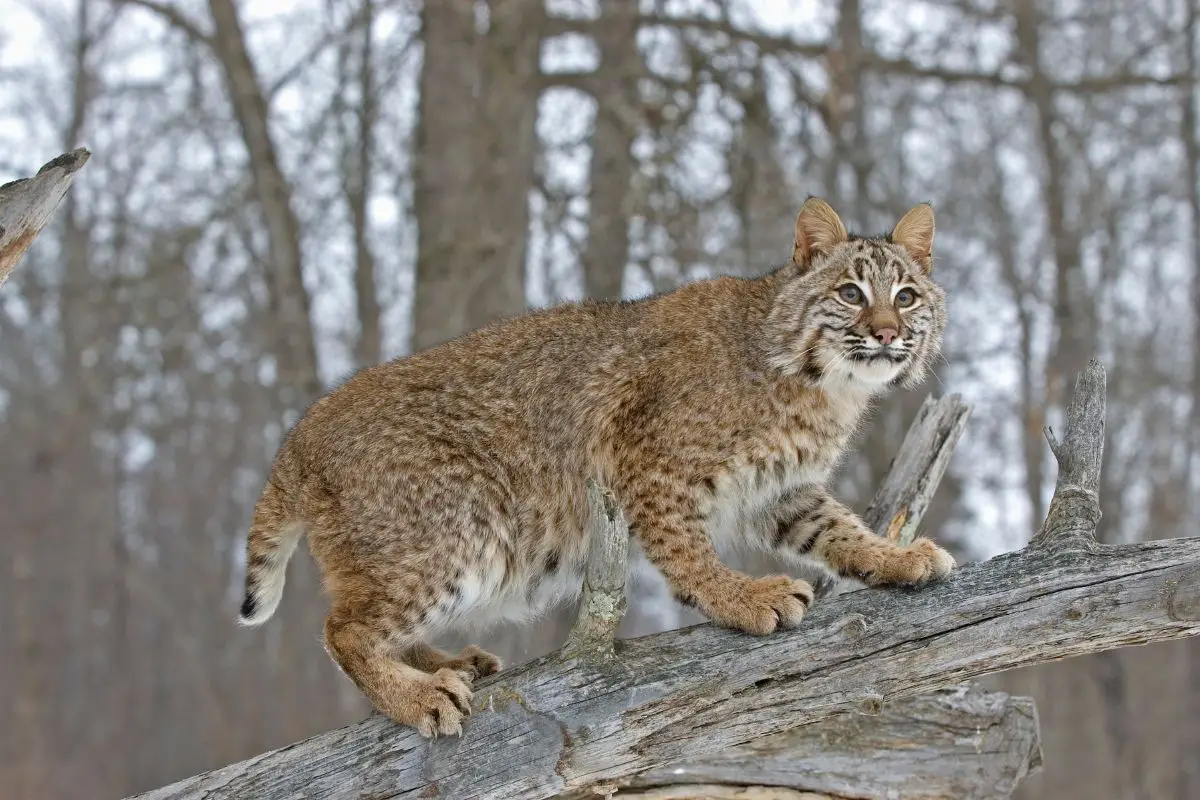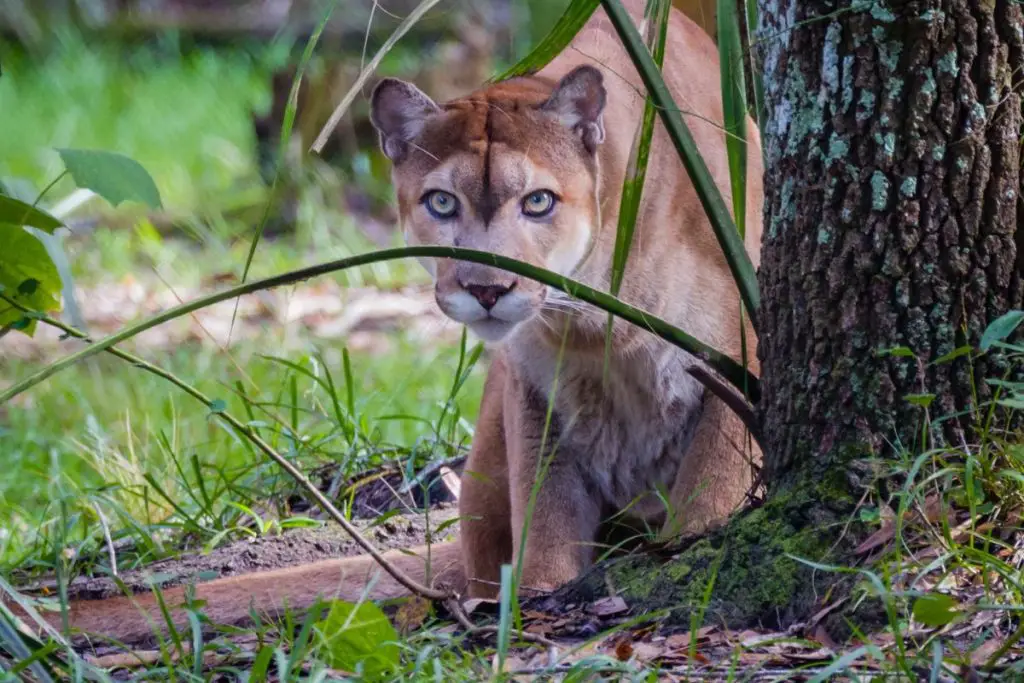When it comes to gorgeous wildlife trails, in the States, New Hampshire has some of the best out there, with the temperate climate, plenty of forested and woodland treks to take, and the rest of the great outdoors that this state has to offer.
However, just like with any other wildlife trek, steps should be taken to keep you as safe as possible while out on your hikes. After all, while it is a sight to behold, mother nature is not a danger to be taken lightly.
Especially when she has so many deadly carnivores at her disposal.
However, in these cases, it is not about living in fear of what the wild and nature hikes can through at you, but understanding what you may run into, what to expect and what you can do in case you run into anything dangerous.
In this particular guide, we are going to cover the alleged panthers that roam the hills and valleys of New Hampshire’s wildlife trails.
Here, we’re going to discuss what these sightings mean, what animals may be mistaken for panthers, what you should know about them, as well as what to do if you encounter one.
Big Cats In New Hampshire
So, before we go any further, we should probably establish the legitimacy of what animals could be considered panthers in New Hampshire.
Because although the concept of panthers in North America is a common one, the reality is a little more complex than that.
No Panthers In New Hampshire
So, let’s get the main issue out of the way first: A lot of cases of sightings of panthers in the US are a case of mistaken identity.
While panthers themselves in the Americas aren’t unheard of, most sightings of panthers in the United States are examples of Jaguars.
And while jaguars used to live across much of the southern United States, their territory is now limited to the southernmost parts of Arizona, thanks to hundreds of years of hunting by people and habitat loss.
And, as sad as this story is (one we will come back to later), most people could probably tell you that New Hampshire isn’t exactly close to Arizona anyway!
So, what are these sightings, then?
Bobcat

New Hampshire, despite not having panthers per se, is home to several wild cat species.
The most common is the American bobcat, which is found across the state. Measuring around 50 inches long in most cases, however, it is unlikely that most people are mistaking bobcats for panthers on their nature walks (although mistakes do happen).
These fluffy felines tend to hunt small game such as rabbits and hares, although they won’t turn down bird meat such as chickens or geese, either.
Due to their solitary and shy nature, as well as their small size, bobcats pose no threat to people in most circumstances, although they can be protective when raising cubs.
Cougar/Mountain Lion
When people are thinking of Panthers in the northern states of the US and Canada, chances are that they are thinking of mountain lions or cougars, two names for the same species of big cat.
And big cats they most certainly are!
While they technically share more in common with small domestic cats and bobcats than cats like jaguars and lions, cougars are the second-biggest cat species in the Americas, with adults growing to around 7 feet long on average, and some examples reaching as much as 9 feet in some cases.
This puts them at the lower threshold of jaguar sizes in some cases, so mistaken identity is certainly a possibility.
Cougars tend to eat ungulate or hoofed animals like deer, but they are also capable of eating everything from hares to rodents too.
Gone From New Hampshire?
However, while cougars may seem like a likely answer to this mystery of big cat sightings in New Hampshire, the tale does take an unfortunate turn.
As, while cougar sightings in New Hampshire were once common, they have pretty much entirely disappeared from the state.
Like with the case of Jaguars further south, cougar populations across the country took a massive hit when European settlers landed in the 15th, 16th, and 17th centuries. The push westward and further urbanization in the 19th century also played a massive part in their disappearance.
This resulted in the cougar population on the east coast of the United States being almost systemically eradicated, with only the Florida Panther avoiding total extinction in the 19th century.
Panther/Big Cat Sightings In New Hampshire

Because of hunting and habitat loss, most sightings in New Hampshire today are often mistaken cases of large bobcats or domestic house cats out on the prowl.
However, not all is necessarily lost for the cougars in New Hampshire.
Since hunting protection laws were enacted across the country in the 60s and 70s, many cougar populations across the country have been stabilizing or even increasing.
This has also come with a resurgence in alleged cougar sightings in New Hampshire.
There has even been evidence of cougars in other eastern states like Massachusetts and Connecticut, although their presence in New Hampshire itself is unverified as of yet.
So, overall, good news for panthers and cougar enthusiasts in the state. Maybe less good for an unfortunate hiker who may accidentally stumble on a cougar den!
What To Do
So, what should you do if you think you have spotted a panther, or have found yourself close to one?
Well, as we have hopefully explained here, the chances of you even seeing a wild cat in New Hampshire are low. Not just because of their rarity, but because they are experts in hiding and camouflage.
You are unlikely to even be aware that an animal such as a bobcat or cougar is near to you, much less see it for yourself.
But in the rare event that you do see one, what should you do?
Well, if a bobcat or mountain lion has made themselves known to you, either through growling, hissing, or other aggressive behavior that is strange, chances are that you have either found an injured/ill animal, or a mother that is close to their kittens.
Bobcat attacks on humans are virtually unheard of, with zero fatalities recorded. However, if you do spot a bobcat, do not become the first casualty by trying to pet it or its kittens!
The same goes for cougars, who, while fatalities from cougars are extremely rare, aren’t unheard of.
Make sure that you back away, make yourself seem as large and threatening slowly, and DO NOT lose sight of the animal. This may give a threatened cougar or bobcat the chance to strike, potentially with deadly results.
And avoid direct eye contact for both animals. Like many other creatures in the natural world, direct eye contact is seen as a challenge or threat to them.
And trust us, it is a threat that you WILL NOT be able to back up.
Final Thoughts
Follow the steps that we have covered, however, and your chances of avoiding death by cougar are pretty good, overall. Add to that the fact that cougars and bobcats tend to avoid humans, and you have a species that is next to no danger to people.



